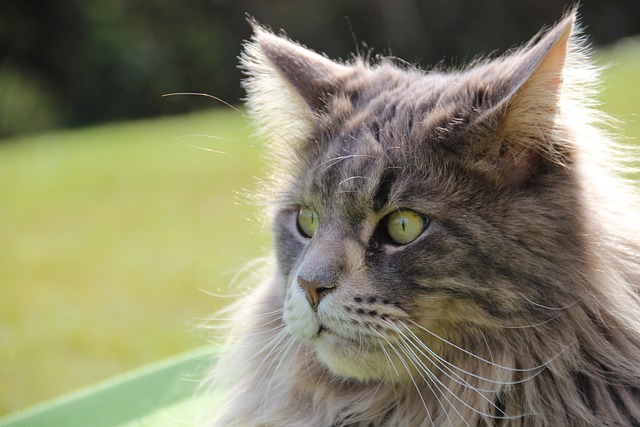Introduction: Cat owners are no strangers to being woken up by their feline friends in the middle of the night, serenading them with a chorus of yowls. But what drives this behavior? There’s more to it than meets the eye. In this article, we’ll explore eight possible reasons behind why cats yowl, helping you understand if it’s a normal part of their behavior or if there’s cause for concern.
The 4 Attention-Related Reasons:
- Hunger Pangs: Just like humans, cats can experience “hangry” moments. An empty food bowl may trigger persistent yowling, signaling that it’s time for a meal.
- Loneliness: Contrary to the stereotype of aloof cats, they crave social interaction. Your cat might be expressing a desire for companionship, seeking your attention through vocalizations.
- Greetings and Communication: Certain breeds, like Siamese, are known for their talkative nature. Your cat might be trying to communicate with you, sharing their day or simply saying hello.
- Stress and Change: Cats can vocalize when they’re stressed, especially in response to changes in their environment. Moving to a new place or other significant alterations can trigger this behavior.
The 4 Health-Related Reasons:
- Aging: As cats grow older, they may become more vocal. While this can be a normal part of aging, it’s still wise to schedule regular check-ups to ensure their well-being.
- Mating Behaviors: Even neutered cats may exhibit mating-related behaviors. This is typically normal play and socialization, but if it becomes excessive, consult a veterinary behavioral specialist.
- Overactive Thyroid: Excessive vocalization can be linked to an overactive thyroid gland. If your cat’s meow suddenly changes or becomes more frequent, a visit to the vet is advisable.
- Kidney Disease: Chronic kidney disease can cause discomfort, leading cats to vocalize more than usual. If your cat’s yowling is out of the ordinary, consider seeking veterinary attention.
Conclusion: Yowling is a multifaceted aspect of cat behavior, with various potential causes. Understanding your cat’s usual behavior is key in discerning whether their vocalizations are a cause for concern. Regular vet check-ups and attentiveness to any changes in behavior can help ensure your furry friend’s health and well-being.
Decoding Cat Yowls: 8 Reasons Behind This Behavior Explained”
Introduction: Cat owners are no strangers to being woken up by their feline friends in the middle of the night, serenading them with a chorus of yowls. But what drives this behavior? There’s more to it than meets the eye. In this article, we’ll explore eight possible reasons behind why cats yowl, helping you understand if it’s a normal part of their behavior or if there’s cause for concern.
The 4 Attention-Related Reasons:
- Hunger Pangs: Just like humans, cats can experience “hangry” moments. An empty food bowl may trigger persistent yowling, signaling that it’s time for a meal.
- Loneliness: Contrary to the stereotype of aloof cats, they crave social interaction. Your cat might be expressing a desire for companionship, seeking your attention through vocalizations.
- Greetings and Communication: Certain breeds, like Siamese, are known for their talkative nature. Your cat might be trying to communicate with you, sharing their day or simply saying hello.
- Stress and Change: Cats can vocalize when they’re stressed, especially in response to changes in their environment. Moving to a new place or other significant alterations can trigger this behavior.
The 4 Health-Related Reasons:
- Aging: As cats grow older, they may become more vocal. While this can be a normal part of aging, it’s still wise to schedule regular check-ups to ensure their well-being.
- Mating Behaviors: Even neutered cats may exhibit mating-related behaviors. This is typically normal play and socialization, but if it becomes excessive, consult a veterinary behavioral specialist.
- Overactive Thyroid: Excessive vocalization can be linked to an overactive thyroid gland. If your cat’s meow suddenly changes or becomes more frequent, a visit to the vet is advisable.
- Kidney Disease: Chronic kidney disease can cause discomfort, leading cats to vocalize more than usual. If your cat’s yowling is out of the ordinary, consider seeking veterinary attention.
Conclusion: Yowling is a multifaceted aspect of cat behavior, with various potential causes. Understanding your cat’s usual behavior is key in discerning whether their vocalizations are a cause for concern. Regular vet check-ups and attentiveness to any changes in behavior can help ensure your furry friend’s health and well-being.



